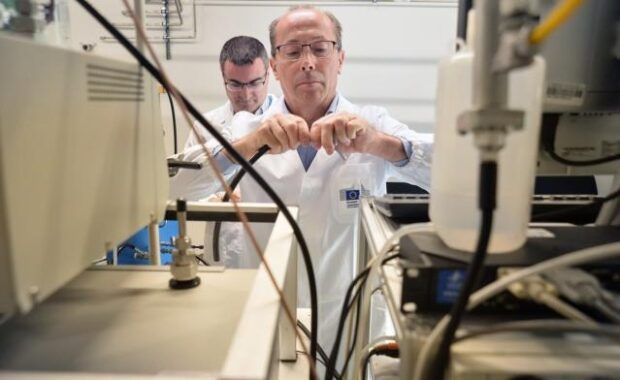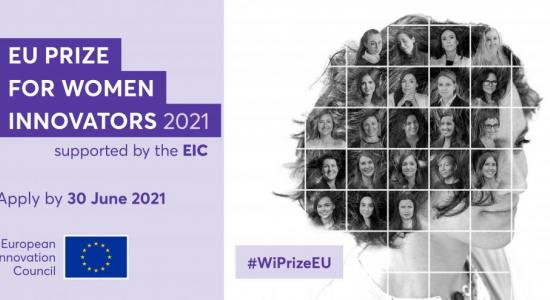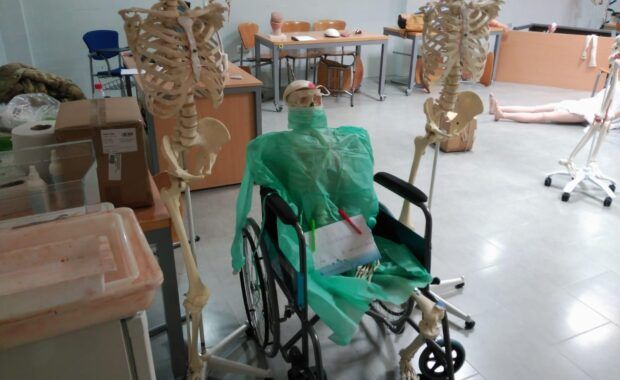Today, the Commission launched 11 new European Partnerships together with industry, to boost investments in research and innovation and to overcome major climate and sustainability challenges, towards making Europe the first climate neutral economy and delivering on the European Green Deal. In line with the goals of the ‘twin’ green and digital transition, the Partnerships […]
HORIZON: Procurement Leadership Award
Expected Impact Public and private procurement represent an untapped potential to stimulate the demand for innovation. The public and private sectors could offer new opportunities for suppliers, and provide better, more efficient services. Therefore, innovation procurement would boost transforming research into innovative solutions targeted at societal needs, and support innovative companies to commercialise their ideas. […]
EU Prize for Women Innovators
The Prize for Women Innovators recognises the role of women in bringing about game-changing innovations to market honouring the outstanding achievements of women running innovative companies. The European Commission will award up to four women innovators in total (three women and one young woman innovator, so-called ‘rising innovator’) who have created the largest impact on the […]
Director Position in Computing in Greece
Description The General Secretariat for Research and Innovation (Ministry of Development and Investments) is seeking a senior research scientist to take up the full-time position of the Director of the Institute of Nanoscience and Nanotechnology (INN) part of the National Centre for Scientific Research “Demokritos” (NCSR “Demokritos”). Requirements An internationally established record of publications, presentations […]
REGIOSTARS Awards 2021
Launched by the European Commission, the RegioStars Awards 2021 aims to identify good practice in regional development and to highlight original and innovative projects that could be an inspiration to other regions. The Award Categories for 2021 are: SMART Europe: Increasing the competitiveness of local businesses in a digital world GREEN Europe: Green and resilient communities in urban […]
Horizon 2020: innovative solution that will allow tracking all commercial freight trains , covering the whole European network
The main objective of the prize is to develop an innovative solution that will allow tracking all commercial freight trains, from all railway undertakings, covering the whole European network. The aim is to provide real time information about the train, accessible to all, including information on the location, departure, destination, compositition and punctuality. In particular, […]
EIC-EIT: working closer together for Europe’s innovators
The European Commission has announced the signature of a Memorandum of Understanding between the European Innovation Council (EIC) and the European Institute of Innovation and Technology (EIT) to reinforce their cooperation to support the best European entrepreneurs. This will enable innovators, innovative SMEs and start-ups, higher education institutions and research organisations to receive quality support services […]
Artificial meet: from lab to fork, a sustainable alternative
Globally, the consumption of animal-based foods is expected to increase in the coming decades because of the combined effects of several global megatrends. The global population increased from 2.5 billion in 1950 to 7.7 billion in mid-2019 and is expected to reach 9.7 billion people in 2050 (UN, 2019). Meanwhile, global economic development, urbanisation and […]
Innovating in the Practical Teaching of Health Sciences: Gamification and Escape Room
Several subjects of the Nursing and Physiotherapy degree of the University of Almeria, through a teaching innovation project, use Escape Rooms as an evaluation tool. “Tell me and I forget, teach me and I may remember, involve me and I learn.” What is teaching innovation? Teaching innovation at all levels of education is not really new, […]









